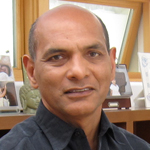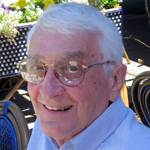The School of Engineering & Applied Science’s Alumni Achievement Awards dinner was held Feb. 23. A reception for the five recipients was held in Brauer Hall, followed by dinner in Whitaker Hall.
Three alumni received Alumni Achievement Awards, one was given the Young Alumni Award and one was honored with the Dean’s Award. The honorees:
Alumni Achievement Awards
S. Massoud Amin (SI ’86, SI ’90)

Amin earned master’s and doctor of science degrees in systems science and mathematics from WUSTL in 1986 and 1990, respectively.
He is the Honeywell/H.W. Sweatt Chair in Technological Leadership at the University of Minnesota, where he also is director of the Technological Leadership Institute and professor of electrical and computer engineering.
Before joining the Minnesota faculty, Amin held positions at the Electric Power Research Institute (EPRI) in Palo Alto, Calif. In the aftermath of Sept. 11, 2001, he was in charge of all infrastructure-security research and development and of grid operations and planning at EPRI. As a pioneer in smart grids and self-healing infrastructures, Amin is considered the “father of the smart gird.”
Prior to joining EPRI, Amin worked at WUSTL for 12 years as a senior fellow/lecturer (1985-89), assistant professor (1990-97), and associate professor (1997-98) of Systems Science & Mathematics.
Sanjai Kohli (SS ’81)

Kohli
Kohli earned a master’s degree in systems science from WUSTL in 1981.
He is recognized worldwide as the architect of mass market global positioning (GPS) systems and helped develop the GPS systems now found in cars and mobile phones. In April 2010, he was named “Inventor of the Year” by the European Union for his contributions to GPS technology.
Kohli founded SiRF, a company that captured more than 70 percent of the GPS semiconductor and software market. He also created WirelessHome (a data communications company) and TrueSpan (a mobile video company), and is working on a company that will authenticate mobile transactions and ePayments.
Frederick (Rick) J. Oertli (EN ’82, PMBA ’92)

Oertli
Oertli earned a bachelor’s degree in electrical engineering from WUSTL in 1982 and his master’s of business administration from the John M. Olin School of Business in 1992.
He is chief executive officer of Guarantee Electric Co. founded in 1902 by a coalition of entrepreneurs who “guaranteed” to light the 1904 World’s Fair. The company has grown into one of the largest and most respected national electrical contracting firms, with offices in four states.
Young Alumni Award
Matthew Ettus (EN ’96, EN ’96)

Ettus
Ettus earned dual bachelor’s degrees in electrical engineering and computer science at WUSTL in 1996 and went on to earn a master’s degree in electrical and computer engineering from Carnegie Mellon University. He is the founder and president of Ettus Research LLC.
Ettus is a major contributor to the GNU Radio project, a free software development tool kit that provides the signal processing, runtime and processing blocks to implement software radios using readily available, low-cost external hardware and commodity processors.
His company sells a line of software-defined radio systems called the Universal Software Radio Peripheral family that can be used for a wide vareity of communication systems. Customers have included more than 300 universities, dozens of research labs, nearly every branch of the U.S. government and military, and hundreds of companies, large and small.
Dean’s Award
Jerome R. Cox Jr.

Cox
Cox is the founding chair of the Department of Computer Science at WUSTL. He is recognized worldwide as a leader in the application of advanced technology for introducing new treatments in biomedical engineering and he developed new computer methods for CT and PET scanners that revolutionized the diagnosis of cancer, cardiovascular disease and heart rhythm disturbances.
With two colleagues, he founded Growth Networks, a company acquired by Cisco that produced an advanced networking chip set, and, in 2007, he started a new company, Blendics (Blended Integrated Circuit Systems), that provides system-on-chip design tools and services to companies that wish to develop complex, proprietary, low-power integrated circuits.